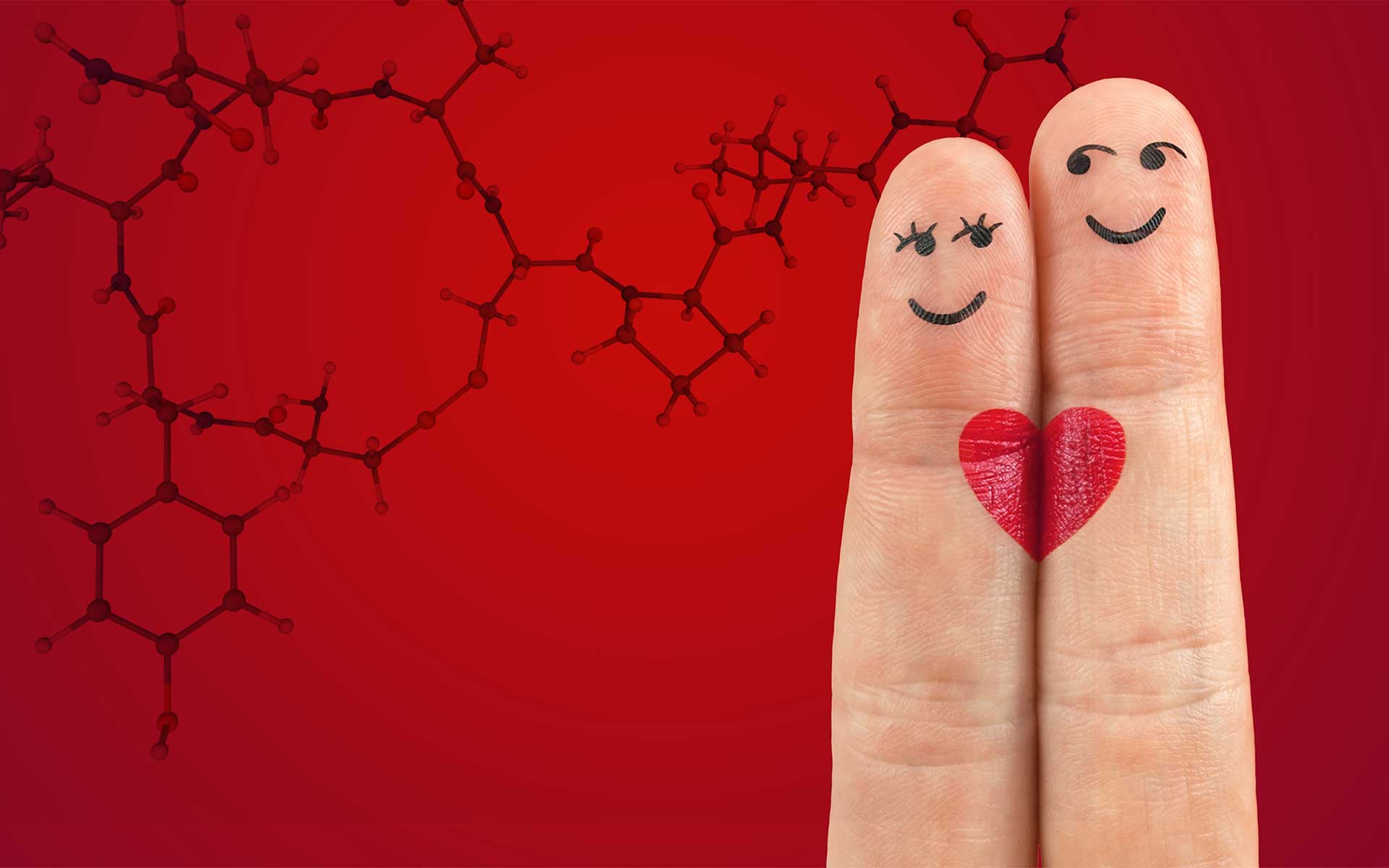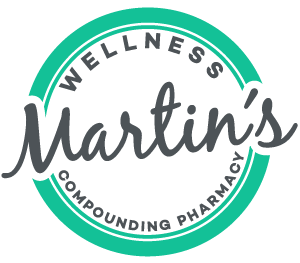Falling In Love With The Many Uses of Oxytocin

Did you know your body actually makes Oxytocin?
Does love truly come from within? The answer is not quite so simple as love can encompass many aspects. One of those aspects actually does come from within. It is no secret that hormones can influence how one is feeling and their emotional states, and some may argue that love is a feeling. Oxytocin is a natural hormone that is secreted during various times in your life in response to various triggers.
The neuropeptide hormone is most famous for its high secretion levels in response to feeling romantic love for someone, sexual arousal in females, childbirth and maternal bonding, earning it the title of the “Love Hormone.” However, recent research has shown it may play roles in promoting social relationships and lowering anxiety. The connection to how it is able to play these major roles not only in our bodies, but our lives likely lies in the physiological mechanism behind it once secreted by the brain.
How Oxytocin Works In The Body?
During labor, oxytocin releases into the bloodstream triggers muscle contractions in the uterus aiding in jumpstarting the birthing process. The hormone is also released to aid in maternal bonding in response to nipple stimulation during breastfeeding. During sexual arousal, the neuropeptide sends signals to the genital tissues allowing for more blood flow and dilation of the blood vessels to the area. In the brain the hormone plays roles in social bonding through its release and binding to receptors in the amygdala and caudate nucleus (areas that regulate emotions such as pleasure and trust). More recent studies have been able to showcase the effects of oxytocin on the anxiety and stress pathways in our brains.


The hypothalamic-pituitary-adrenal (HPA) axis describes a signaling pathway in your body that essentially signals that your body is under stress, releasing hormones such as cortisol (AKA the “Stress Hormone”). When this system is constantly being activated and someone experiences chronic stress it can be detrimental not only for your body’s functioning but also your mental wellbeing with increased risks for development of depression and/or anxiety. More interesting, is the role that oxytocin plays in both social bonding, mood, and maternal bonding lending to some experts to point out a connection of depleted oxytocin in mothers who experience postpartum depression. Oxytocin works to cut these cortisol and overall stress down when it is released through its effects in the HPA axis.
In consideration to all the ways it can positively affect the body and emotional states, it is no surprise that many healthcare professionals are turning to it as potential therapy for a multitude of diagnoses. Particularly when the hormone may be below expected levels causing health conditions beyond mood disorders to occur. Some common signs that someone’s oxytocin levels may be suboptimal include: difficulty in childbirth (labor induction and postpartum bleeding of the uterus) issues lactating, low libido, vaginal atrophy/erectile dysfunction, pain, social, feeling overwhelmed by stress, anxiety, feelings of isolation, general anxiety, depression, and insomnia.
How The Love Hormone Became a Love Drug?


Oxytocin is best delivered in the form of non oral formulations. The hormone’s pharmacokinetic properties limit its ability to be taken as a tablet, capsule, or solution due to its short-half life and tendency to be inactivated in the gastrointestinal tract. In turn, the drug is available in an intravenous, intramuscular, intranasal, vaginal, and even sublingual forms. However, each formulation depends on the condition that is being treated.
A mainstay therapeutic drug for aiding in a difficult childbirth and delivery are the intravenous and intramuscular formulations of oxytocin. The neuropeptide has also been used to treat migraines in its intravenous forms.
More rarely, sublingual oxytocin can be given with ketamine in cases of severe and persistent pain. The vaginal route has been used in the past for treatment of vaginal atrophy as well.
Intranasal sprays are the formulation of oxytocin with the widest array of uses when it comes to treatments. Like with the intravenous formulation, oxytocin may be given intranasally to treat migraines. And similar to the sublingual formulation of oxytocin’s use for severe intractable pain the intranasal formulation can help to treat fibromyalgia (a severe type of widespread muscle pain). Issues with lactation have also been shown to be helped by intranasal oxytocin.
However, its novel uses for conditions with psychosocial aspects to them is what can make this drug be potentially life changing. Intranasal oxytocin has shown success in aiding with autism, poor dieting/obesity, postpartum depression, sexual dysfunction and social anxiety. In return, there has been growing excitement by healthcare professionals for the use of intranasal oxytocin. The growing number of prescriptions written for intranasal oxytocin for treatments of sexual dysfunction or social anxiety has continued to further the excitement that this drug holds for many.
Oxytocin is available by prescription only. Reach out to our pharmacists for more information!
References
- https://med.stanford.edu/news/all-news/2017/09/study-shows-how-love-hormone-spurs-sociability.html
- https://www.health.harvard.edu/mind-and-mood/oxytocin-the-love-hormone
- https://go.drugbank.com/articles/A229013
- https://www.ncbi.nlm.nih.gov/pmc/articles/PMC2972642/
- https://go.drugbank.com/drugs/DB00107
- https://physicianspreferencerx.com/wp-content/uploads/2021/03/PPPI-newsletter-pro-Oxytocin-2021-v2n1-final.pdf
Frequently Asked Questions
What is Oxytocin?
Oxytocin is a hormone and neuropeptide produced in the brain, often associated with love, childbirth, and social bonding. It plays a crucial role in various physiological and emotional processes, including labor, maternal attachment, and the enhancement of social interactions.
How does Oxytocin work in the body?
Oxytocin works by triggering muscle contractions in the uterus during labor, facilitating maternal bonding through nipple stimulation during breastfeeding, and enhancing sexual arousal by increasing blood flow to genital tissues. It also impacts emotional regulation and social bonding by acting on brain regions responsible for emotions and trust.
What are the therapeutic uses of Oxytocin?
Therapeutically, oxytocin is used in various forms to aid difficult childbirth, treat postpartum bleeding, enhance lactation, manage migraines, treat sexual dysfunction, and alleviate conditions like fibromyalgia. Intranasal oxytocin, in particular, has been explored for treating autism, obesity, postpartum depression, and social anxiety.
Can Oxytocin help with mental health issues?
Research suggests oxytocin has potential benefits in reducing anxiety, stress, and symptoms of depression. It may also support those with social anxiety and autism by enhancing social interactions and emotional bonds. However, its effectiveness can vary, and it is often considered as part of a broader treatment plan.
Is Oxytocin available over the counter?
No, oxytocin is a prescription-only medication. Its administration and dosage depend on the condition being treated, and it is available in several forms, including intravenous, intramuscular, intranasal, vaginal, and sublingual formulations.
What are the signs of low Oxytocin levels?
Low oxytocin levels may manifest as difficulties in childbirth, issues with lactation, low libido, erectile dysfunction, increased stress and anxiety levels, feelings of isolation, and challenges in forming social bonds. If you suspect low oxytocin levels, it's important to consult a healthcare professional for assessment and potential treatment options.
